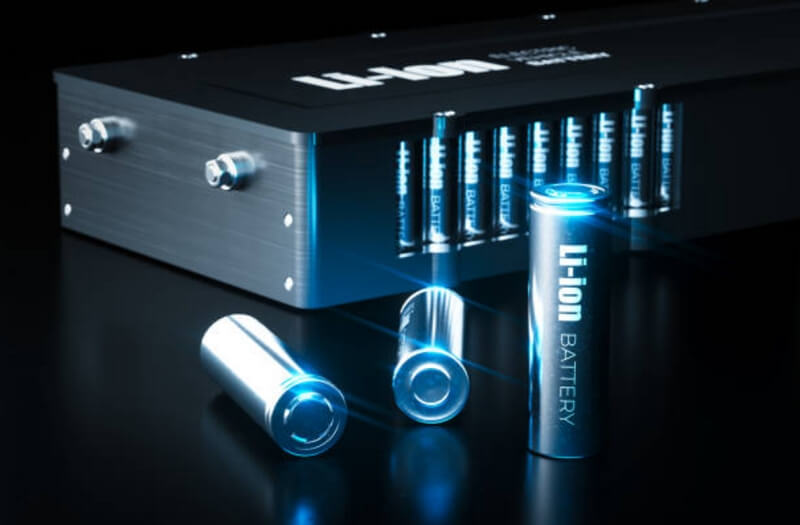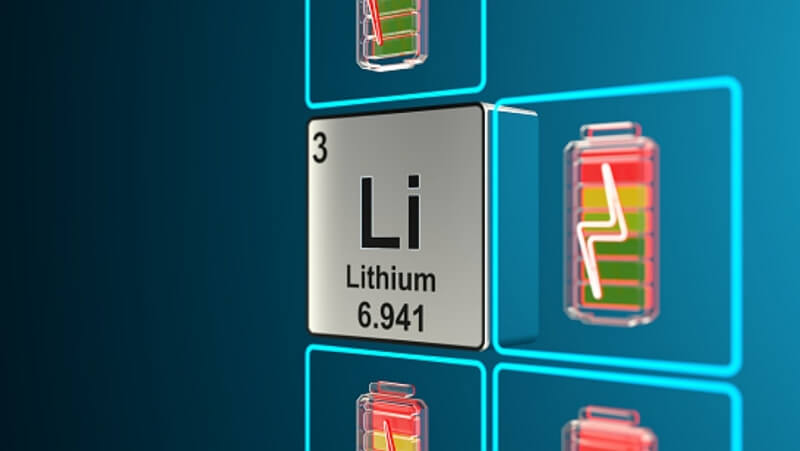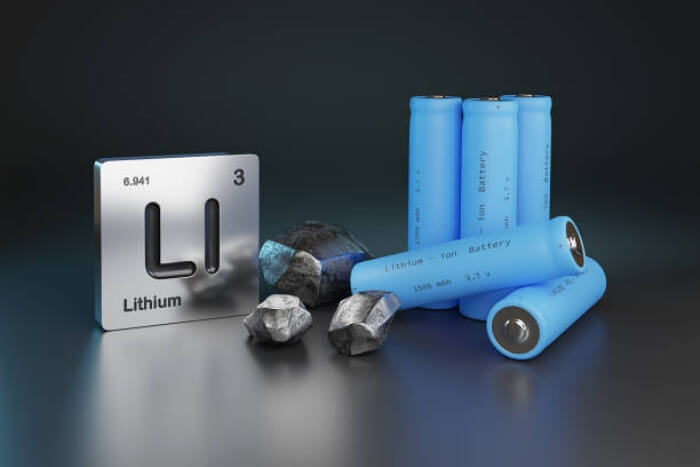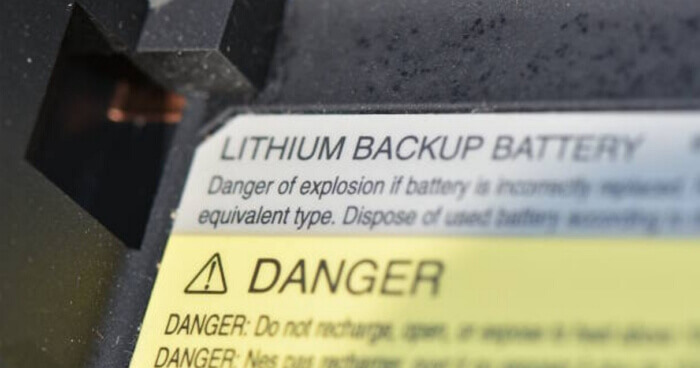Lithium batteries are becoming more popular as the battery of choice for many devices. They offer several advantages over other types of batteries, such as being lighter in weight and holding a charge for a longer period. One of the most common questions about lithium batteries is how long they will last. The answer to this question depends on several factors, such as the type of device in which the battery is being used and how often the device is used.
There are a few things that can help prolong the life of the lithium battery and ensure it is working at its best. In this article, we will discuss how long do lithium batteries last and some tips for maintaining them.

1. How Long Can a Lithium Battery Last on a Single Charge
The answer to this question, “how long do lithium batteries last” depends on several factors, such as the type of battery, the device it is powering, and how it is used. However, a lithium battery can last several hours on a single charge. With proper care, some batteries may even last for days or weeks. Here we discuss them all.
1.1 How Lithium Batteries Work and Their Duration of Work
The answer to this question “how long do lithium ion batteries last” also depends on the working of the batteries. Lithium batteries work by using lithium ions as a positive charge. These ions are then stored in a negative electrode, typically made of carbon. When the battery is discharged, the ions flow from the negative electrode to the positive electrode and back again. This flow of ions creates an electric current that powers whatever device the battery is powering.
As for lifespan, lithium batteries can last for hundreds of cycle charges (Related Article; How Long Do Golf Cart Batteries Last). However, over time, they will gradually lose their capacity to hold a charge. For example, a battery that can be charged 500 times may only be able to be charged 490 times after a few years. Nevertheless, lithium batteries still last much longer than other types of batteries.
Related Topic: >> LiFePO4 Battery vs. Lead-acid Battery
1.2 Influencing Factors of the Working Time
Several factors can influence the working time of a lithium battery. The type of battery, the age of the battery, the temperature, and the application all play a role in how long a lithium battery will last.
It is extremely important to choose the right type of battery. There are two types of lithium batteries: primary and secondary. Primary lithium batteries are used in devices that are not regularly used, such as smoke detectors. They have a longer shelf life than secondary batteries and can last ten years. However, they are more expensive.

Secondary lithium batteries are used in devices that are used regularly, such as laptops and cell phones. They have a shorter shelf life than primary batteries and must be replaced more often. However, they are less expensive.
The age of the battery is also a factor. Lithium batteries degrade over time and lose their capacity to hold a charge. This is why it is important to check the battery life of devices regularly and replace them when they start to lose their charge. The temperature is also a factor. Lithium batteries perform best in cool, dry conditions. Heat can damage them, and they should be stored in a cool, dry place.
2. How Long is the Lifespan of a Lithium Battery?
Studies have shown that the average lithium battery life expectancy is between 2 and 4 years. However, this can vary depending on the type of battery, quality, and how it is used. So here we discuss the different factors that influence lithium-ion battery life expectancy.
2.1 Definition of Lithium Battery Lifespan
A lithium battery’s lifespan is defined as the number of charge/discharge cycles it can undergo before it reaches the end of its useful life. The end of a battery’s useful life is typically reached when it can no longer hold a charge or its capacity has diminished to the point where it can no longer power the device it is intended to.
Evaluating a lithium ion battery’s lifespan can be complex as several variables can affect how long a battery will last. These variables include but are not limited to the type of battery, the temperature at which it is stored, how it is used, and how often it is used.

2.2 Factors that Influence Battery Lifespan
There are several factors that affect battery lifespan, including:
● Temperatures of Use Environments
A few different factors come into play when it comes to how temperature affects lithium batteries. One is the chemical reactions that are taking place inside the battery. At higher temperatures, these reactions happen more quickly, which can lead to the degradation of the battery.
Another factor is that higher temperatures can cause the battery’s internal structure to change, which can also lead to a shorter lifespan. To extend the lifespan of lithium batteries, it’s best to keep them in a cool, temperature-controlled environment.
● Charging Cycle
The lifespan of a lithium battery is determined by the number of charging cycles it goes through before it needs to be replaced. But what exactly is a charging cycle? A charging cycle is a period during which the battery is discharged and recharged.
So, how does the number of charging cycles influence the lifespan of a lithium battery? As the number of charging cycles increases, the battery will slowly lose capacity and eventually need to be replaced.
● Storage Method
The way of storing lithium batteries can influence how long they last. Proper storage can extend their lifespan. But if anyone doesn’t store them properly, they may only last for a few months.
So what is the best way to store lithium batteries? Here are a few tips:
- √ Store them in a cool, dry place
- √ Store them at a moderate temperature
- √ Avoid storing them in direct sunlight
- √ Avoid storing them in humid environments
By following these tips, one can ensure that their lithium batteries will last a long time.

3. How To Extend The Service Life Of Lithium Battery
Service life is when a lithium battery can be expected to be operational and perform the required function. It is important to know what measures should be taken to enhance the service life of lithium batteries. Here are a few tips; check them out.
3.1 Maintain a Moderate Temperature
Improper temperature management can shorten the service life of lithium batteries and cause irreversible damage. To extend lithium batteries’ service life, maintaining a moderate temperature is important. Keeping batteries away from direct sunlight in a cool, dry area is recommended. If the temperature gets too hot or cold, it can damage the battery and reduce its service life.
The working principle of the lithium battery is that when the battery is used, the active material in the positive electrode is oxidized, and the electrons are generated. A temperature change accompanies this electrochemical reaction.
If the temperature is too low, the speed of the electrochemical reaction will be reduced. If the temperature is too high, the speed of the electrochemical reaction will be accelerated. In addition, high temperatures will also accelerate the aging of the battery and shorten its service life of the battery.
3.2 Pay Attention to State of Charge
One of the main factors that determine how long a lithium battery will last is the state of charge (SOC) at which it is operated. SOC is a measure of how much charge remains in a battery, typically expressed as a percentage. There are a few reasons why SOC is so important for battery life. First, batteries discharge more slowly at higher SOCs, reducing the time spent in a deep discharge state.
Deep discharge can be harmful to batteries and is one of the main causes of capacity loss. Second, batteries operate more efficiently at higher SOCs. This means less heat is generated during charging and discharging, which helps prevent degradation. That’s why avoiding the extreme state of power, such as 0% and 100%, is advisable.
3.3 Keep Appropriate Charging and Discharging Current
It is important to maintain the proper charging and discharge current to extend the battery’s service life. If the charging current is too high, it will cause the lithium ions to bind together, forming a “solid electrolyte interface” (SEI) layer on the anode. This SEI layer will eventually become too thick and prevent the lithium ions from moving freely, causing the battery to fail.
If the discharging current is too high, it will cause the formation of “dendrites” on the lithium metal anode. These dendrites are thin, needle-like structures that can grow rapidly and eventually cause a short circuit in the battery, leading to failure. So, charge and discharge the lithium battery slowly.
3.4 Avoid High Moisture Environment
Lithium batteries are sensitive to high moisture environments, which can shorten their service life. It’s important to avoid exposing them to high moisture environments. It is recommended to store them in such an environment and be sure to seal them in a moisture-resistant container. By taking these precautions, one can help extend the service life of lithium batteries.
3.5 Avoid Mechanical Damage
It is no secret that batteries are expensive, and the cost of replacements can add up quickly. That is why avoiding mechanical damage to lithium batteries (learn: Why The AF Lithium Battery Is Popular) is important. By doing so, one can extend the service life of their batteries and save money in the long run.

There are a few simple steps that can take to avoid mechanical damage to the lithium batteries:
- √ Avoid dropping or bumping the battery.
- √ Be careful not to expose the battery to sharp objects.
- √ Do not twist or bend the battery.
- √ Do not expose the battery to extreme temperatures.
Following these simple guidelines can help ensure that lithium batteries will last for many years.
4. Trustworthy Supplier of Long Service Life Lithium Batteries
At Polinovel, we understand that businesses need a supplier they can trust when it comes to batteries. That’s why we only sell the highest quality lithium batteries, designed for long service life. With our batteries, customers can be sure they’re getting a product that will perform repeatedly.
We have a team of experts who design and manufacture our batteries to meet the highest standards in the industry. Our products are used in various applications, including solar systems, electric boats, electric vehicles, etc.

Our batteries are designed for safety and reliability, and we offer a wide range of types and sizes to meet clients’ needs. We also offer custom battery packs and have a team of engineers who can help clients select the right battery for their applications.
If looking for a lithium battery supplier consumers can trust, look no further than Polinovel. We would be happy to share more information about our products and services, such as lithium battery customization.
Conclusion
Lithium batteries have a lot of advantages (Learn: Lithium Ion Battery Pros and Cons: What You Need to Know) over other types of batteries. However, the average lifespan of a lithium battery (learn: What Is Good About HDN Lithium Battery?) is two to three years. To prolong the lifespan of the lithium battery, it is important to follow the manufacturer’s recommendations for care and maintenance.
The answer to “how long do lithium batteries (learn: What Is A Good Lithium RV Battery) last?” depends on various factors such as storing them in a cool and dry place, regularly checking for damage, and not overcharging them. When stored and used correctly, lithium batteries can last for years.

